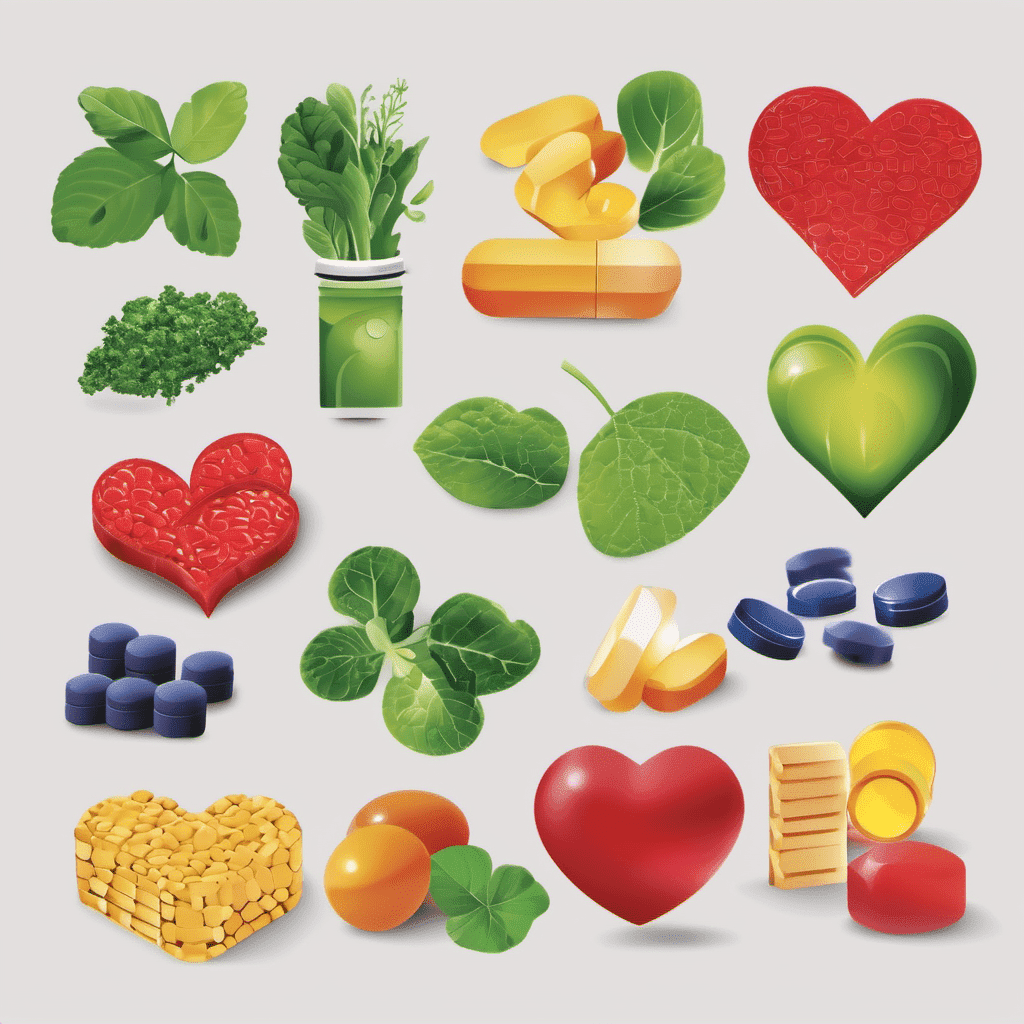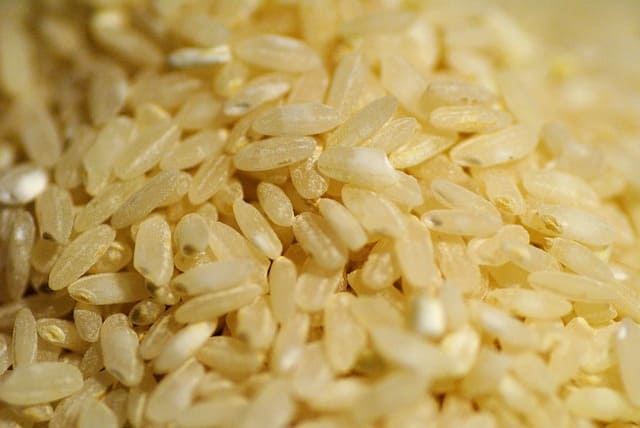The concept of “healthiest foods” revolves around identifying and incorporating nutritious, healthy options to promote overall health. These foods are rich in essential vitamins, minerals, antioxidants and other bioactive compounds that support various body functions and contribute to optimal health. Emphasizing a diverse range of fruits, vegetables, whole grains, lean protein, and healthy fats is fundamental to a nutritionally balanced diet. The healthiest foods are often characterized by their ability to provide sustained energy, support immune function, and contribute to maintaining a healthy weight. Prioritizing choices packed with these nutrients can play an important role in preventing chronic diseases and promoting longevity. As people increasingly recognize the importance of mindful eating, finding the healthiest foods has become a focal point in achieving and maintaining an active and flexible lifestyle.
In this comprehensive guide, we’ll explore the foods in the world of nutrition that provide the most benefits for our overall health.

Basics of a healthy diet.
A healthy diet is the foundation of overall well-being, providing essential nutrients for bodily function and disease prevention. Understanding the basics of a healthy diet is critical to making informed and sustainable food choices.
1. Types of Nutrition:
A well-balanced diet should include a wide variety of nutrients to meet the diverse needs of the body. It contains carbohydrates, proteins, fats, vitamins and minerals. Each nutrient plays a unique role in maintaining health and a deficiency in any one of them can lead to various health problems. Getting a variety of nutrients ensures the body gets the nutrients it needs for energy production, tissue repair, immune function and more.
2. Portion Control:
While the quality of the food we eat is important, so is the quantity. Portion control involves being mindful of serving sizes to avoid overeating. Consuming adequate portions helps regulate calorie intake, prevent weight gain, and promote weight management. It also allows for a more balanced distribution of nutrients throughout the day.
3. Hydration:
Water is often overlooked as a key component of a healthy diet. Staying properly hydrated is essential for many bodily functions, including digestion, nutrient transport, temperature regulation, and toxin elimination. Individuals should aim to drink at least 8 glasses of water a day, and more in hot or physically demanding situations.
4. Mindful Eating:
The concept of mindfulness has gained importance in our fast-paced society. This includes being present and paying attention while eating. By paying attention to hunger and satiety cues, individuals can develop a healthy relationship with food. Mindful eating promotes a more conscious awareness of food choices, which improves decision-making and reduces emotional or overeating.
5. Balanced Nutrients:
A balanced diet should include an adequate distribution of macronutrients – carbohydrates, proteins and fats. Carbohydrates are the body’s primary energy source, proteins support muscle function and repair, and fats contribute to various bodily functions, including hormone production and mental health. Maintaining the right balance between these macronutrients ensures that the body gets the energy and building blocks it needs to perform optimally.
6. Dietary Guidelines:
National and international health organizations provide dietary guidelines to help individuals make informed choices about their food intake. These guidelines often include advice on limiting daily calorie intake, food group servings, and intake of added sugars, saturated fat, and sodium. Following these guidelines provides a framework for creating a nutritious diet.
7. Personal Nutrition:
Recognizing that individual nutritional needs may vary based on factors such as age, gender, activity level, and health conditions, personalized nutrition has gained importance. Tailoring dietary choices to meet individual needs ensures that nutritional needs are more accurately met. Consultations with health care professionals or registered dietitians can provide personalized guidance for developing a diet that fits specific needs and goals.
The foundations of a healthy diet encompass a variety of principles that contribute to overall well-being. Food variety, portion control, hydration, mindful eating, and balanced nutrition form the foundation of a nutritious lifestyle. By incorporating these principles into everyday food choices, individuals can lay the foundation for sustainable health, disease prevention, and a high quality of life.
Whole grains for sustainable energy:
Whole grains stand as a nutritional powerhouse, offering a plethora of health benefits that go beyond just providing energy. These grains, such as quinoa, brown rice, oats, and whole wheat, are rich in complex carbohydrates, fiber, B vitamins, and essential minerals. The complex carbohydrates in whole grains release glucose slowly into the bloodstream, providing a steady and steady supply of energy. This slow release helps stabilize blood sugar levels, preventing rapid spikes and crashes associated with refined carbohydrates. As a result, individuals experience more sustained energy throughout the day, which increases overall productivity and mental focus.
Additionally, the fiber content of whole grains helps improve digestive health. Fiber increases stool bulk, helps regular bowel movements and prevents constipation. Additionally, it supports the growth of beneficial gut bacteria, promoting a healthy gut microbiome. In addition to digestive benefits, whole grains contain B vitamins, including folate, thiamine and niacin, which are essential for a variety of bodily functions, including energy metabolism and red blood cell formation. Additionally, whole grains boast an impressive array of antioxidants that fight oxidative stress and inflammation, which play a role in reducing the risk of chronic diseases such as heart disease and certain cancers.
Adding whole grains to the diet is not only a practical strategy for sustainable energy, but also a proactive approach to long-term health. From the heart-healthy benefits of oats to the nutrient-dense profile of quinoa, the diverse range of whole grains provide a versatile and flavorful foundation for a balanced diet. Whether enjoyed as a side dish, added to a salad, or used as a base for a meal, whole grains are an essential component of a nutritionally robust diet, contributing to sustained energy levels. and promotes overall health.
Power Packed Fruits and Vegetables:
Fruits and vegetables are the dynamic and nutritious foundations of a health-focused diet, offering an array of essential vitamins, minerals, fiber and antioxidants. Leafy greens, such as kale and spinach, are nutritional powerhouses rich in iron, calcium, and vitamins A and C. These nutrients play an important role in bone health, immune system support, and antioxidant defense against free radicals. Berries, including blueberries, strawberries, and raspberries, are not only bursting with natural sweetness but also packed with antioxidants known for their anti-inflammatory properties. The dark colors of these fruits indicate the presence of flavonoids and polyphenols, which play a role in reducing the risk of chronic diseases and promoting heart health.
Cruciferous vegetables such as broccoli, cabbage, and Brussels sprouts are celebrated for their cancer-fighting properties. Rich in fiber, vitamins and phytochemicals, these vegetables support digestive health and provide essential nutrients for overall health. The diverse colors of fruits and vegetables reflect their unique nutritional content, and a diverse selection ensures a wide spectrum of health benefits. Additionally, the fiber content aids digestion and promotes feelings of fullness, making fruits and vegetables valuable allies in weight management. By including a rainbow of fruits and vegetables in their diet, individuals can harness their nutritional power to boost the immune system, support heart health, and promote a resilient body.
In addition to their nutritional potential, fruits and vegetables also offer versatility in the kitchen. From refreshing salads to flavorful smoothies, these plant-based foods can be enjoyed in countless delicious ways. Embracing a diet rich in power-packed fruits and vegetables is a delightful journey to better well-being, where vibrant colors and diverse flavors symbolize the health benefits that await to be tasted.
Lean protein for muscle health:
Proteins, often called the building blocks of life, play an important role in maintaining muscle health and supporting various bodily functions. In the context of a healthy diet, lean protein is central, offering many benefits without the drawbacks associated with high-fat protein sources. Lean protein options such as chicken, turkey, fish, tofu, beans and nuts provide essential amino acids for muscle growth, repair and overall cellular function.
Poultry, like chicken and turkey, is known for its high-quality protein content and relatively low fat content, making it an excellent choice for muscle health. Fish, especially fatty types like salmon and mackerel, provide not only protein but also omega-3 fatty acids, which have anti-inflammatory effects and support heart health. The inclusion of plant-based proteins, such as tofu an legumes (beans, lentils, and chickpeas) offer valuable alternatives for those following a vegetarian or vegan diet.

In addition to supporting muscle health, lean proteins contribute to weight management by promoting feelings of satiety. The thermic effect of protein, or the energy required to digest and metabolize it, further contributes to calorie expenditure. This makes lean protein a valuable component in weight loss and maintenance efforts.
Additionally, the nutritional profile of lean proteins goes beyond muscle support. They are rich in essential vitamins and minerals, including iron, zinc, and B vitamins, which play a role in immune function, energy metabolism, and overall vitality. Including a variety of lean protein in the diet ensures a diverse array of nutrients, which contribute not only to muscle health, but to overall body health.
Finally, the inclusion of lean protein in one’s diet is a fundamental aspect of promoting muscle health and overall well-being. By choosing multiple sources of lean protein, individuals can ensure their bodies receive the nutrients necessary for optimal muscle function, recovery, and maintaining a healthy body composition. Whether through animal or plant-based sources, the inclusion of lean protein adds a nutritional punch to a balanced and health-conscious diet.
Healthy fats for brain and heart health:
Contrary to the misconception that all fats are unhealthy, it is important to include the right fats in your diet. Avocados, nuts, seeds, and olive oil are rich in monounsaturated and polyunsaturated fats, which support brain health, reduce inflammation, and contribute to cardiovascular health.
Dairy and alternatives for bone health:
Calcium and vitamin D are important for maintaining strong and healthy bones. Dairy products like yogurt and milk, along with fortified plant-based alternatives like almond or soy milk, offer essential nutrients. Adequate calcium intake is especially important for preventing conditions such as bone density and osteoporosis.
Superfoods: Nature’s Nutrients
Superfoods, a category of nutrient-dense foods celebrated for their extraordinary health benefits, are nature’s nutritional powerhouses that contribute to overall well-being. Salmon, a fatty fish rich in omega-3 fatty acids, promotes heart health and cognitive function. Chia seeds, packed with fiber and omega-3s, support digestive health and provide sustained energy. Blueberries, for their antioxidant content, are praised for combating oxidative stress and inflammation. Kale, spinach and other leafy greens offer an abundance of vitamins, minerals and antioxidants that are important for immune support and disease prevention. These superfoods, with their concentrated nutrient profiles, go beyond basic nutrition, offering a powerful arsenal of protective compounds that play a role in reducing the risk of chronic diseases and promoting optimal health. Adding these nutrient-dense foods to the diet increases nutritional diversity, ensuring an optimal approach to achieving and maintaining active health.
Hydration: The Unsung Hero of Health:
Amid the plethora of nutrition debates, hydration often stands out as the unsung hero of health, playing a vital role in maintaining overall health. Water, the elixir of life, is fundamental to many bodily functions, including digestion, nutrient absorption, and temperature regulation. Adequate hydration supports cellular processes, helps flush out toxins, and ensures efficient transport of nutrients throughout the body. In addition to its physiological functions, staying properly hydrated contributes to glowing skin, better cognitive function, and sustained energy levels. The importance of hydration goes beyond simply quenching thirst. This is a foundation of health that should not be underestimated. Incorporating not only plain water but also herbal teas and water-rich fruits and vegetables into the daily routine ensures that the body remains optimally hydrated, facilitating a flexible and dynamic state of health.
Also Read:
Burn calories and build muscle with 20 minute workout
HPV vaccine stops women in Scotland from getting cervical cancer, study finds
Dancing is an effective way to lose weight
Conclusion:
In achieving a healthy lifestyle, understanding the healthiest foods is a fundamental step. By adding a variety of nutrient-dense foods to your diet, you can improve your overall health, increase energy levels, and reduce your risk of chronic diseases. Remember, moderation, variety and balance are the keys to unlocking the full potential of a nutritious diet. Embrace the journey to better health through informed and mindful food choices every day.
Remember, a healthy diet is a lifelong journey, not a quick fix. Listen to your body, prioritize variety and balance, and most importantly, enjoy the delicious world of nutritious food!
FAQs about the Healthiest Foods:
Q: What are the top healthiest foods?
A: It’s not a one-size-fits-all answer, but consider fruits, vegetables, whole grains, legumes, nuts, seeds, and lean protein for a rich nutrient mix. Think vibrant colors, variety, and minimally processed choices.
Q: What makes a food “healthy”?
A: It’s about nutrient density! Look for foods packed with vitamins, minerals, fiber, and antioxidants while being low in unhealthy fats, added sugars, and sodium.
Q: Which fruits and vegetables are the healthiest?
A: Aim for a rainbow! Berries, leafy greens, citrus fruits, cruciferous vegetables, and avocados offer incredible nutrient powerhouses.
Q: Why are whole grains important?
A: They provide sustained energy with complex carbs, fiber, and essential vitamins and minerals. Choose brown rice, quinoa, oats, whole-wheat bread, and other whole grains over refined options.
Q: Are nuts and seeds good for you?
A: Absolutely! They’re packed with healthy fats, protein, fiber, and micronutrients. Enjoy them in moderation as part of a balanced diet.
Q: Are there any “superfoods” I should eat?
A: While many foods offer valuable nutrients, focus on a diverse, balanced diet rather than chasing single “superfoods.”
Q: What foods are good for specific health conditions?
A: Talk to your doctor or registered dietitian for personalized dietary advice for managing specific health conditions.
Q: How can I make healthy eating easy and delicious?
A: Get creative in the kitchen! Explore new recipes, experiment with spices and herbs, and involve family and friends to make healthy eating an enjoyable experience.
Q: Where can I find reliable information about healthy food choices?
A: Check out the National Institutes of Health (NIH), Centers for Disease Control and Prevention (CDC), and Academy of Nutrition and Dietetics for credible resources and guidelines.





